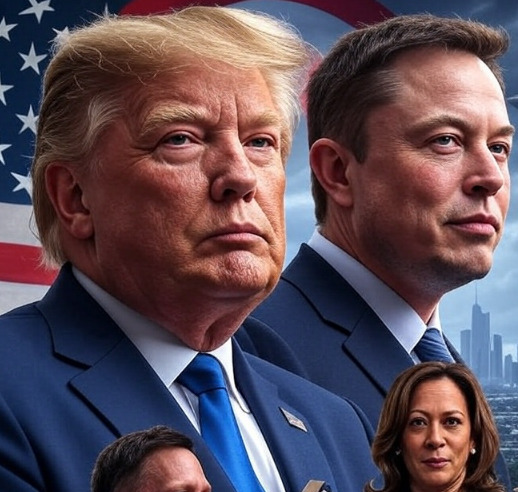
Donald Trump: A polarizing figure with unfulfilled promises and tech concerns
Donald Trump, the 47th President of the United States, remains a lightning rod in American politics. His presidency, defined by brash rhetoric and an outsider’s zeal, has ignited fierce debate about his effectiveness and legacy. Supporters see him as a disruptor dismantling a corrupt system, while critics argue he has failed to deliver on key campaign promises, such as releasing the Epstein files, declassifying UFO-related documents, and fostering a freer nation. When compared to Vice President Kamala Harris, Trump’s record sparks a question: Is he better? For many, the answer tilts yes, but his unfulfilled pledges and troubling ties to invasive technology raise concerns about his vision for freedom.
Trump’s appeal stems from his defiance of the political establishment. His 2016 and 2024 campaigns galvanized voters frustrated with Washington’s elite. Promises to “drain the swamp,” expose hidden truths, and prioritize American interests resonated deeply. Compared to Kamala Harris, whose vice presidency has been criticized for its lack of focus and impact, Trump’s unfiltered style projects strength. Harris’s shifting policy stances—from progressive to moderate—have left her vulnerable to accusations of inauthenticity, while Trump’s economic policies, like tax cuts, and foreign policy wins, like the Abraham Accords, give him an edge. Yet, his second term has fallen short of the transformative change he promised.
One major letdown is the Epstein files. Trump’s 2024 campaign teased declassifying documents tied to Jeffrey Epstein, hinting at exposing elite networks. Supporters anticipated revelations, but progress has stalled, likely due to legal complexities or political pressures. This inaction frustrates voters who saw transparency as a cornerstone of his platform. Similarly, Trump’s pledge to release UFO-related information has fizzled. Despite 2020 hints at extraterrestrial knowledge, the Pentagon’s UAP reports under his watch were underwhelming, lacking the groundbreaking disclosures promised. This has left advocates feeling misled, questioning Trump’s commitment to truth.
The promise of a “freer” America has also faltered. Trump championed free speech, railing against Big Tech censorship, but systemic reforms have been limited. Bureaucratic resistance persists, and issues like government influence over online content moderation continue to threaten liberties. Harris, tied to policies like vaccine mandates, is seen by some as less freedom-oriented, yet Trump’s inability to enact sweeping change undermines his advantage.
A deeper concern lies in Trump’s ties to tech moguls like Peter Thiel and Elon Musk, whose ventures could open a Pandora’s box of invasive technology. Thiel’s Palantir, with its surveillance capabilities, and Musk’s ventures, like Neuralink and X’s data practices, raise alarms about privacy and freedom. Trump’s alignment with these figures suggests a blind spot: he may not fully grasp how their technologies could limit individual liberties. Palantir’s data analytics, used by government agencies, could expand state overreach, while Neuralink’s brain-computer interfaces pose ethical risks. X, under Musk, has faced scrutiny for data handling, potentially clashing with Trump’s free-speech advocacy. If unchecked, these technologies could erode the very freedoms Trump claims to champion, creating a surveillance state that contradicts his rhetoric. His failure to address this tension casts doubt on his vision for a freer America.
Despite these issues, Trump’s charisma and anti-establishment stance give him an edge over Harris, whose tenure lacks populist fire. However, his unfulfilled promises and tech alliances risk alienating supporters. The Epstein files, UFO disclosures, and a freer nation were symbols of a transparent, people-first government. Add to that the potential for invasive tech to undermine liberty, and Trump’s legacy faces a critical test. Can he deliver on his promises and navigate the tech dilemma? His ability to do so will determine whether he truly outshines Harris and fulfills his vision for America.
